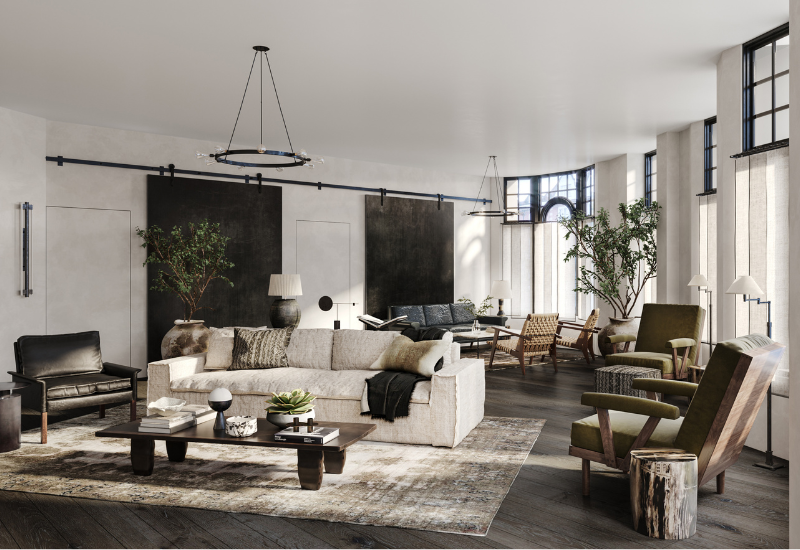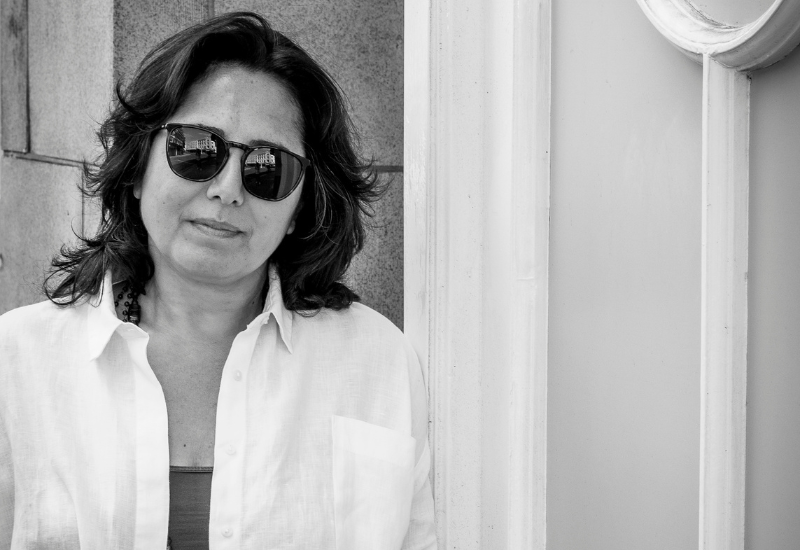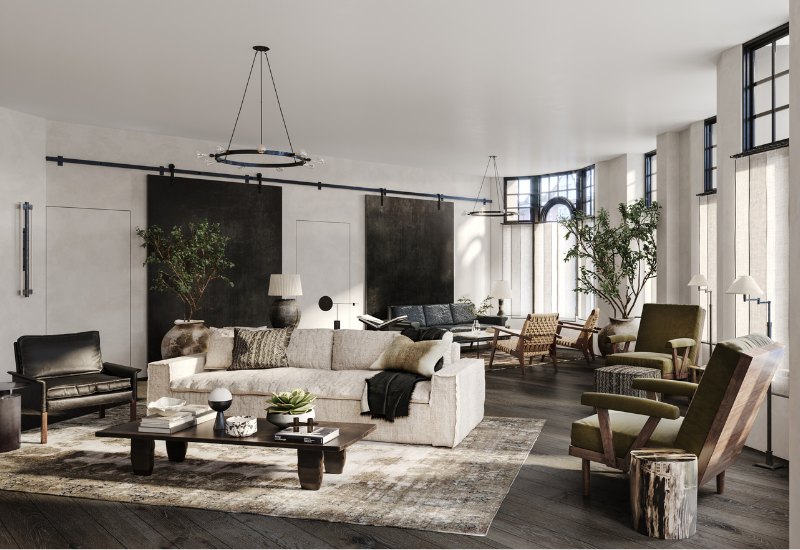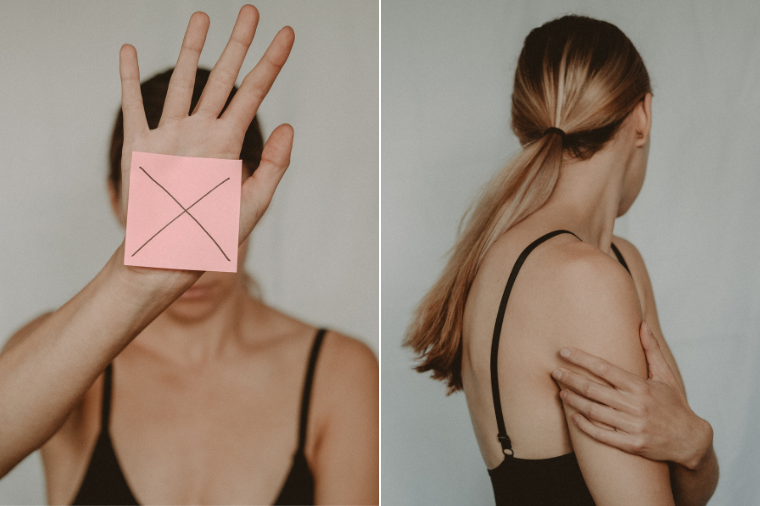Maryam Meddin, founder of The Soke, a mental health and wellness clinic in London shares her tips on how to overcome stress in 2024.
What do the first 30 minutes of your day look like, your morning routine look like?
My alarm usually rings at 5am, after which I take a shower, fuel my system with coffee and ready to be out of the house by 6am. Unless there’s something that’s pressing on my mind, that hour would have been all about catching up with the news from around the world and I’ll have tried not to think about work.
Talk us through your background.
I was born in Iran but have spent most of my life in the UK, so I feel that I have the privilege of being enriched by two prominent cultures. There’s also been diversity in my professional life – I studied law, however later built a career in branding. When that was going well, I decided to explore my mental health through psychotherapy, which then led me to train as a psychotherapist, and finally towards the launch of The Soke.

What inspired you to launch The Soke?
There was a lot of loss in the first 25 years of my life, including the loss of my father and brother so, from a purely personal perspective, The Soke is really dedicated to them. I was around 40 when I decided to try therapy and it was a defining experience for me. Ultimately it was through this process of both being a user and a provider of mental health services that I was able to identify shortcomings on both sides and wanted to create a service that tried to address them.
Tell us about the concept and what services does the clinic offer?
We’re a private mental health centre with the full spectrum of services offered by psychiatrists, psychologists, psychotherapists and coaches. It was designed to enable individuals with everyday issues (anxiety, depression, ADHD and more) to get the services they needed from a place that would treat them as clients, not patients. People don’t necessarily always know how to find the most appropriate solution for their emotional or psychological problems, so I wanted The Soke to provide all the options under the same roof and to have a strong service element that would help clients navigate the pathway that would serve them best. We satisfy their curiosity and support them so that they can make their own informed choices. You cannot overestimate the value of providing these sorts of tangential services around mental health, especially to parents who feel incredibly vulnerable when trying to make decisions around the care of their children. I believe that by making people feel empowered around their psychological health they’ll start engaging with their thoughts and emotions in a way that’s conducive to improving their wellness and therefore their quality of life. It’s no different to working with a personal trainer for your physical health: you fix the problem areas; you build strength and develop resilience in order to feel better overall.

The clinic offers best-in-class psychotherapists, psychiatrists, psychologists, counsellors and leadership development specialists – tell us more.
Our practitioners cover a range of specialties, from depression to ADHD to compulsive behaviours and everything in between. They’re all chosen based on their expertise and experience, as well as their appetite to collaborate with their peers to ensure that clients get the benefit of their pooled knowledge through a daily Multi-disciplinary Team Meeting. Paying practitioners to spend time quite simply talking to each other and sharing their insights is a model that doesn’t really exist in the private outpatient world, and this sort of collaborative ethos is why we’ve been lucky enough to draw some of the leading names in our field. Increasingly our clients are based outside the UK, and they come to us because our Multidisciplinary clinical model combined with the service element doesn’t really exist where they’re based.
What are some of the major concerns that clients talk about?
We’re inundated by calls requesting assessments: from ADHD to Educational Psychology and Autism – our primary responsibility is to make sure that concerns are reasonable, rather than say yes to everyone who wants to be tested. After that, it’s the ‘usual suspects’ of depression and anxiety – although we’re seeing much more of it in children than we used to. On the corporate side, workplace culture is playing an ever-growing role in the sustainability of organisations and so we work with a lot with leaders who are striving to strike the balance between being a leader that performs (from a business perspective) and one that transforms (from a cultural perspective). It demands a thoughtful type of leadership that allows consistency and change to co-exist and increasingly modern leaders are recognising the need to have a ‘safe space’ to ruminate and develop their thoughts.
“I think that everyone should try to find that one space in their head, where going to it can bring them down from 100 to zero in a matter of minutes.”
With stress levels constantly on the rise – what can help lower them?
Naturally, I’m an advocate for talking – ideally to someone who doesn’t have a stake in your life and can help you to explore your anxieties without judgement or repercussion. Separate from that, I think that everyone should try to find that one space in their head, where going to it can bring them down from 100 to zero in a matter of minutes.
How can employers create a working culture that boosts business resilience and growth?
People in leadership positions need to lead by example: show strength in compassion and demonstrate a concerted effort to be a force for the good of the company’s people as well as its other stakeholders. The star players in any sector will want to work for those who can inspire them to succeed and grow as individuals as well as professionals – attracting and retaining talent is always an excellent starting point for longevity.
What advice would you give to anyone who wishes to start therapy?
A productive therapeutic process relies on the relationship of trust that exists between the client and practitioner – and that doesn’t come overnight, so after you’ve found someone with the right credentials, allow a couple of sessions to see if they feel right for you and whether you can envisage fully trusting this person at some point. That’s when the real work starts between you. Therapy isn’t designed to be fun – if you’re enjoying it because it’s easy then one of you isn’t doing your job right.

We all want to start the year on a positive note – what would you recommend?
Find that one thing to do or that one place in your head that gives you peace and visit it frequently.
This is ‘The Alignment issue’ – what activities ensure you feel aligned daily?
My alignment generally comes at the end of the day. I try to spend some time alone with my own thoughts to process and be ready for whatever’s coming next. The Soke’s core value is Generosity – to exercise it as frequently as opportunity allows, whether it’s with time, knowledge, kindness, humour or something tangible. I chose generosity not just because it’s such a positive attribute, but because it’s measurable. I can reflect on my day and examine whether I’ve lived by the value I espouse for my company. If the answer is yes, then I’m sufficiently aligned to fall asleep with a good conscience.
January’s – The Alignment Issue with FitnGlam – Download Now
– For more on luxury lifestyle, news, fashion and beauty follow Emirates Woman on Facebook and Instagram
Images: Supplied & Feature Image: Pexels @Anete Lusina











